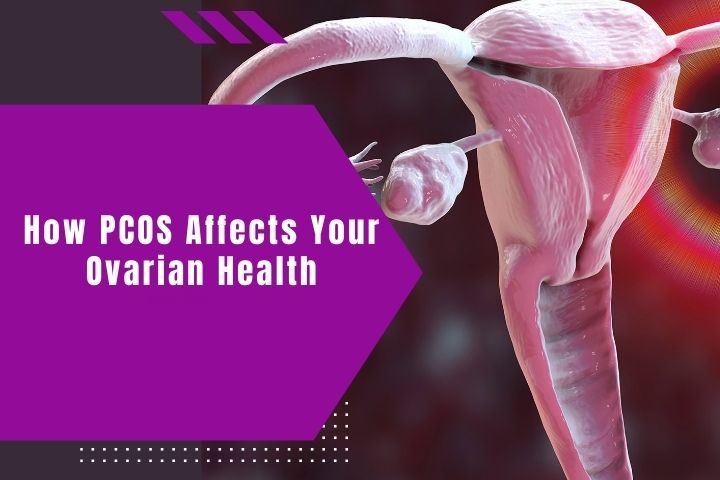
Polycystic Ovary Syndrome (PCOS) is one of the most common hormonal disorders affecting women of reproductive age. It directly impacts the ovaries, leading to irregular menstrual cycles, hormonal imbalances, and fertility issues. Understanding how PCOS affects ovarian health is crucial for early diagnosis, timely treatment, and better management of the condition.
Understanding PCOS and Its Link to the Ovaries
What is PCOS?
PCOS is a condition caused by hormonal imbalances, particularly an excess of androgens (male hormones) in women. These hormonal changes interfere with the normal function of the ovaries, preventing regular ovulation and leading to multiple small cysts within the ovaries.
Why Ovaries Are Affected
The ovaries are responsible for releasing eggs during ovulation. In women with PCOS, this process is disrupted due to hormonal imbalances. As a result, eggs may not mature properly, leading to irregular or absent ovulation and, consequently, difficulties with fertility.
Impact of PCOS on Ovulation and Fertility
Irregular Menstrual Cycles
One of the earliest signs of PCOS is irregular periods. Because ovulation does not occur regularly, menstrual cycles may be delayed, absent, or unusually heavy. This irregularity makes it difficult for women to predict their fertile window, reducing the chances of natural conception.
Challenges in Fertility
Since ovulation is either absent or inconsistent in women with PCOS, fertility is often compromised. Many women with PCOS face challenges in becoming pregnant without medical assistance. However, with proper treatment and lifestyle modifications, successful pregnancies are very much possible.
Long-Term Effects on Ovarian Health
Development of Ovarian Cysts
Although the term “polycystic” suggests multiple cysts, not every woman with PCOS will develop them. However, in many cases, immature eggs accumulate and form small fluid-filled sacs in the ovaries. These cysts are generally harmless but indicate disrupted ovarian function.
Risk of Ovarian Dysfunction
Over time, untreated PCOS can contribute to ongoing ovarian dysfunction. This not only affects fertility but can also increase the risk of other complications such as endometrial hyperplasia and even long-term hormonal imbalances if not managed properly.
Managing PCOS for Better Ovarian Health
Lifestyle Modifications
Healthy lifestyle changes such as maintaining an active routine, balanced diet, and weight management can significantly improve symptoms of PCOS. These adjustments help restore hormonal balance and improve the chances of regular ovulation.
Medical Treatment and Specialist Care
Doctors often recommend treatments like hormone therapy, ovulation-inducing medications, or minimally invasive procedures to manage PCOS and improve ovarian function. Consulting an experienced gynecologist ensures that treatment is tailored to each woman’s specific needs.
Conclusion: PCOS has a direct impact on ovarian health, affecting ovulation, fertility, and long-term reproductive well-being. With timely diagnosis, lifestyle adjustments, and expert medical care, women can effectively manage PCOS and protect their ovarian health. Dr. Preeti Tandon provides the best services regarding PCOS management, offering compassionate care, advanced treatment options, and personalized solutions to support women’s reproductive health.



